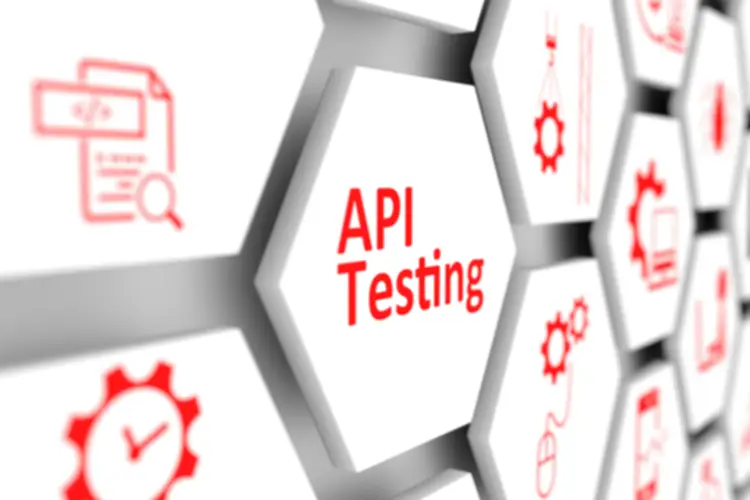There are a number of applications of AI in hospital-based well being care systems19, 20 in organizing dosage varieties for individualized patients and selecting suitable or obtainable administration routes or remedy policies. Understanding protein constructions is crucial for drug design, as it helps identify how medicine can interact with their targets. AI enhances pharmacovigilance by enabling the real-time surveillance of drug safety and efficacy in the post-market phase. AI proficiently generates synthetic data to reinforce scarce real-world datasets, addressing challenges related to knowledge insufficiency, privacy concerns, and regulatory compliance.
Strategic Deal Trends In Synthetic Intelligence In Pharmaceutical Industry
These challenges are much less about technology readiness and more about organizational complexity, regulatory warning, and cultural inertia. Addressing these roadblocks for CIOs and transformation leaders is essential to transitioning from innovation pilots to enterprise-wide maturity. These initiatives enabled AstraZeneca to move past pilot projects, embedding AI into the core of its operations and driving significant web developer efficiencies in drug growth.

By using AI-powered predictive analytics, the company can forecast demand, handle inventory, and cut back manufacturing costs. This ensures that the right medicine are produced at the right time, lowering waste and improving effectivity across its global operations. Sanofi, a global healthcare leader, can additionally be harnessing the ability of AI to drive its pharmaceutical research and development. One of Sanofi’s most notable collaborations in AI has been with Exscientia, a British AI-driven drug discovery company.
Ai In Pharma Industry: Important Use Cases You Should Know
After this, particular person doses of tablets are picked, packaged, and distributed artificial intelligence in pharmaceutical industry by the robotics. The thin plastic ring contains all drugs that should take by a patient inside a period of 12h. Including to the capabilities of the automated system is their ability to organize sterile preparations that are meant for chemotherapy along with filling intravascular syringes with the best medications46. Scientific trials, a historically complicated and inefficient process, are also benefiting from AI. Since scientific trials rely on patient participation, AI helps streamline recruitment for trials by identifying eligible candidates more effectively and at a scale not possible with humans alone.
- Deep learning algorithms determine emerging trends, predict market shifts, and inform product positioning methods.
- High pharmaceutical firms, including Roche, Pfizer, Merck, AstraZeneca, GSK, Sanofi, AbbVie, Bristol-Myers Squibb, and Johnson & Johnson have already collaborated with or acquired AI technologies.
- The pharmaceuticals industry is experiencing a transformative shift driven by Artificial Intelligence (AI).
- One Other solution, PROTACs (PROteolysis TArgeting Chimeras) handle the problem of undruggable proteins through focused protein degradation.
- In addition to those operational advantages, Bayer is leveraging AI in its advertising and gross sales efforts.
- This builds inside credibility and helps get skeptics on board when they see tangible results.
Trusted by industry leaders like Samsung, Nestlé, and Magna, we offer unmatched knowledge, a 360-degree business view, and data-driven intelligence for confident strategic choices. Leverage our innovation companies to optimize costs, streamline operations, and keep ahead of the curve. Get in contact at present to explore how our complete innovation intelligence can drive your success. Canadian startup Cedience provides an augmented regulatory intelligence platform that holds vast data of regulatory information. It integrates pure language processing (NLP) and machine learning (ML) to automate information assortment from a extensive array https://www.globalcloudteam.com/ of regulatory databases.

CIOs must lead initiatives integrating AI throughout departments, fostering a data-driven mindset all through the enterprise. This iterative loop ensures that AI methods evolve repeatedly with the most recent scientific knowledge, supporting sooner discovery and more informed decision-making. Right Here are the highest priorities CIOs should address to embed AI into the fabric of pharmaceutical operations, every illustrated with real-world case research that show what is working. As AI tools mature and real-world use cases multiply, the challenge for pharma CIOs is not about whether or not to invest in AI; it’s the means to industrialize it. This complete overview explores the crucial use instances of AI in the pharmaceuticals industry. They form the best way many pharma stakeholders take into consideration the know-how, resulting in project failures or low adoption rates.
Integrating AI across the pharmaceutical worth chain can remodel healthcare, providing an unprecedented alternative for competitiveness in the industry. Artificial intelligence continues to evolve quickly, bringing a spread of emerging tendencies that promise to remodel the pharmaceutical trade further. Amongst these trends is the increasing use of deep learning models for analyzing complicated information, corresponding to medical pictures and genomic sequences.
AI accelerates drug discovery by analyzing massive datasets of chemical compounds and organic information to establish potential drug candidates extra shortly than traditional methods. Machine studying algorithms can predict molecular behavior and simulate how compounds will interact with organic techniques, allowing researchers to focus on probably the most promising candidates. This reduces the time and price concerned within the early stages of drug research, enabling quicker growth of latest remedies.
Functions Of Ai In Prescription Drugs
Nonetheless, the ROI potential is greater—with companies reporting 25% sooner drug discovery and 70% price reductions in trials in comparability with traditional methods. By 2025, the hole between AI-enabled and conventional pharmaceutical corporations will become insurmountable. Early movers will dominate not just through better drugs, however through extra efficient operations, smarter advertising, and deeper affected person insights. Beyond R&D and production, AI in pharmaceutical industry is increasingly reworking how pharmaceutical companies market their products and interact with healthcare providers and patients. This represents a major opportunity that many firms are simply beginning to explore. Intending to improve the protection of sufferers, the College of California San Francisco (UCSF) Medical Heart makes use of robotic know-how for the preparation and monitoring of medicines.
Machine studying fashions analyze vast datasets, including genetic info, disease pathways, and past clinical outcomes, to foretell how medicine will work together with biological targets. This not solely hastens the identification of promising compounds but in addition helps eliminate ineffective or potentially harmful choices early in the research course of. The pharmaceutical trade, recognized for its rigorous research, advanced drug development pipelines, and use of cutting-edge know-how, is undergoing a transformation because of AI. From functions corresponding to disease identification and prognosis, drug discovery, optimization of clinical trials, or improving manufacturing efficiency, AI is accelerating the trade. With huge quantities of organic, chemical, and patient information at its disposal, the pharma trade is uniquely positioned to harness AI’s full potential.
Janssen Pharmaceutica, a subsidiary of Johnson & Johnson, is closely using AI to advance its analysis and development efforts. The firm has partnered with a number of tech corporations to combine AI into its drug discovery applications, specializing in early detection of ailments and the development of personalized therapies. One of Janssen’s significant AI initiatives is using machine learning algorithms to research patient knowledge and develop predictive fashions that help in early disease prognosis. AI is transforming supply chain management within the pharmaceutical industry, making it more efficient and resilient. With predictive analytics, AI can forecast demand, helping pharmaceutical firms optimize production schedules and handle inventories more successfully. This reduces the possibilities of stockouts or overproduction, guaranteeing the proper amount of medicine can be found at the proper time.


